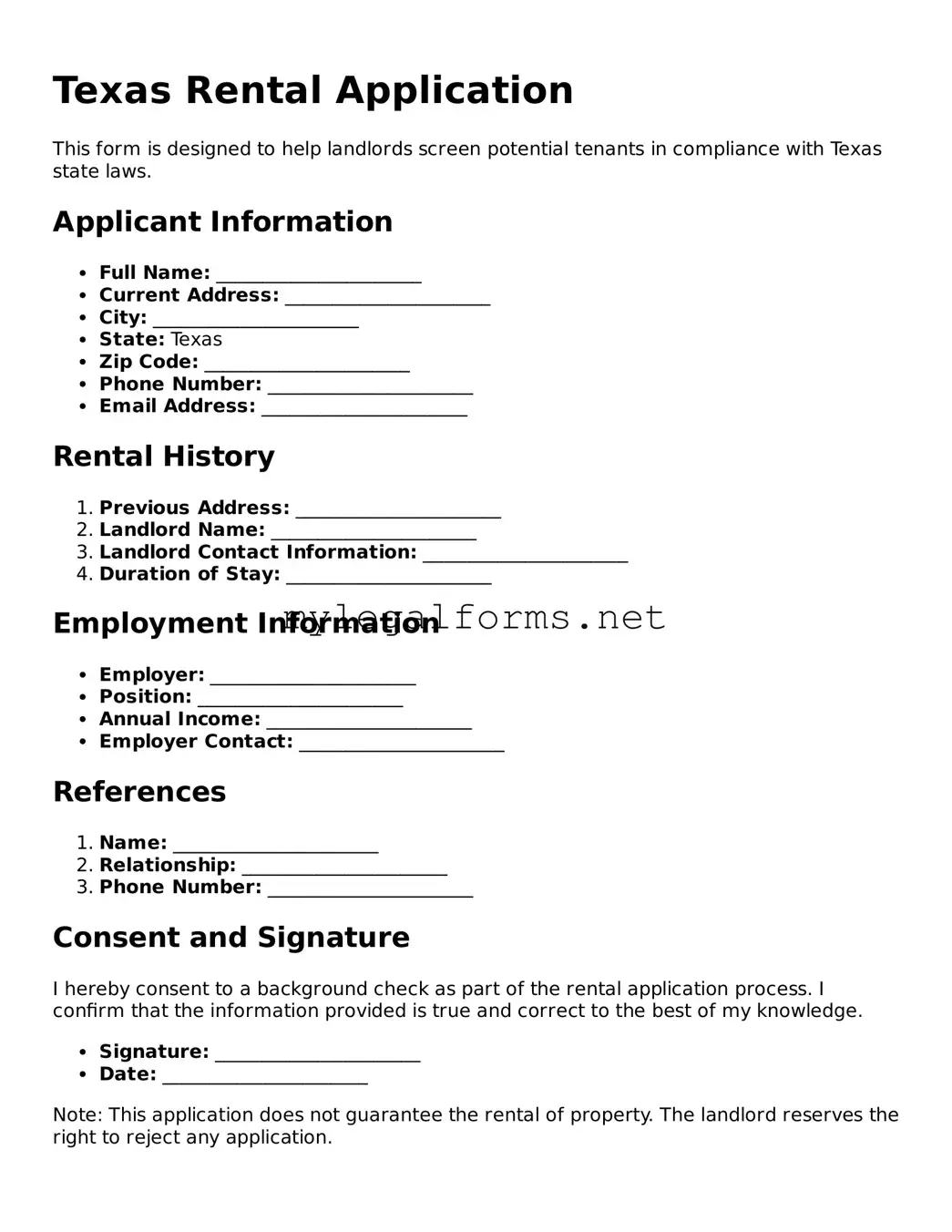Filling out a Texas Rental Application form can be straightforward, but many people make common mistakes that can delay the process or lead to disqualification. One frequent error is incomplete information. Applicants often forget to fill in essential details such as their current address or employment history. Omitting this information can raise red flags for landlords.
Another mistake is providing inaccurate information. Some applicants may unintentionally misstate their income or employment status. This can lead to distrust from the landlord and potentially result in a denied application.
Many applicants also fail to disclose previous rental history fully. Landlords typically want to know about past leases, including any evictions or disputes. Not being transparent can result in automatic disqualification.
In addition, some individuals neglect to include references. Failing to provide personal or professional references can hinder the application process. Landlords often rely on references to gauge an applicant's reliability and character.
Another common issue is not providing proof of income. Many landlords require documentation such as pay stubs or bank statements to verify financial stability. Without this proof, an application may be deemed incomplete.
Some applicants overlook the importance of signing the application. A signature is necessary to validate the information provided. An unsigned application can lead to delays or outright rejection.
Additionally, many people forget to read the fine print. Terms and conditions may include important information about fees, deposits, and lease terms. Ignoring these details can result in misunderstandings later.
Another mistake is failing to check for errors before submission. Simple typos or incorrect phone numbers can lead to communication issues. Taking a moment to review the application can prevent these problems.
Some applicants may also rush the process, leading to poor presentation. A messy or disorganized application can create a negative impression. Taking the time to present the application neatly shows professionalism.
Finally, many individuals do not follow submission guidelines. Each landlord may have specific requirements regarding how to submit the application, whether online or in person. Not adhering to these guidelines can result in disqualification.

